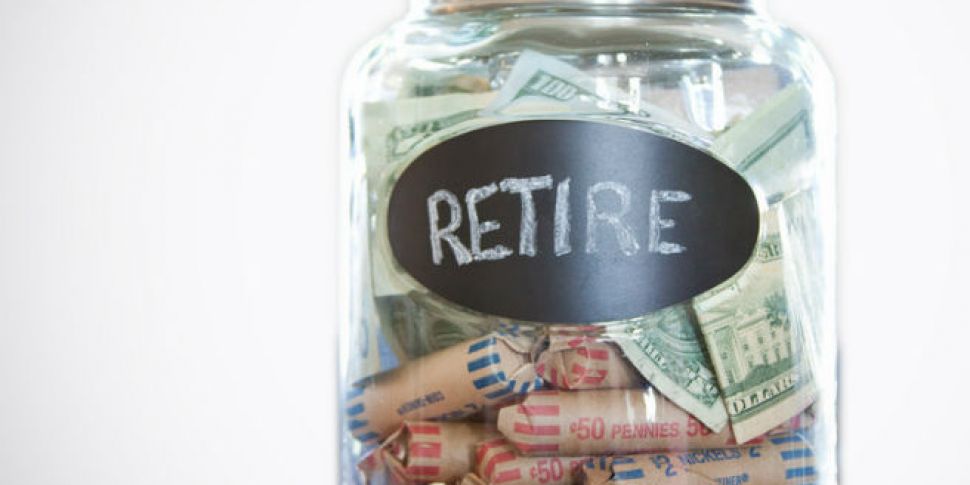Pension experts Clear Financial have warned that workers who began their career at the start of the recession might have halved their retirement pot potential by delaying their pension saving.
Looking at someone with an income of €30,000 starting a pension contribution of €100 per month (costing just €80 due to the tax relief available), Clear Financial found that their pot is reduced by 49% if they put off their contributions by 10 years.
If you were 25 as the recession took hold in 2007 and have spent the past decade paying that amount into your fund, your pension pot would be almost €275,000 when you retire at 68.
If you only started your fund today at the age of 35, however, your pot at age 68 will be €140,000, nearly half of what it could have been.

Michael Keating, QFA and senior financial adviser at Clear Financial, explained:
“It has been 10 years since Ireland started its decline into recession and we believe that when this happened, lots of workers put the idea of pension saving on hold until they were able to weather the financial storm that was passing.
"Since then many of these people, possibly despite the best of intentions, simply haven’t managed to devote any time or money into setting up a pension and saving for retirement. We are really calling on these people to sit up and take note – every year you put it off costs you.”
“The figures demonstrate the impact that the first 10 years of pension saving will have on your overall fund total in retirement, proving the point that the earlier you start your pension the better – preferably in your twenties or early thirties."
Midlife cause for concern (and action)
The calculations also show how vulnerable you would be if you put off your pension contributions until middle age.
If you were 45 when the recession hit and are only now, at 55, starting to save €80 per month into a pension, your fund at 68 will be 62% less at €25,000 than had you started saving in 2007 (in which case it would be €65,000).
Keating continued:
“We certainly don’t want people who don’t have a pension in place to think 'We’re doomed in retirement'.
"We just want to spur them into making sure they have a decent income in retirement by taking steps now. So too with those pension savers who decided to pause or reduce contributions during those financially challenging years. We would advise these people, who hopefully might find themselves in a better financial position now, to consider restarting their pension saving habits. The figures really do drive home the point that the longer you wait, the bigger the negative impact on your pension pot.”

Young worker lethargy
Clear Financial also conducted a nationwide survey last year which highlighted how little awareness there is amongst those in the younger age groups of the importance of pension saving.
The survey showed that while 66% of people in all age groups feel that one should start a pension in their twenties, this view is less prevalent in the younger respondents. Just 46% of young adults (18-34) feel this way, compared to 73% of 35-54 year olds.
Self-employed among most vulnerable
Clear Financial contends that those who have to make the decision to set up a pension themselves – such as the self-employed and those in smaller firms – are more vulnerable than those in the public sector and those working for some of the larger employers.
The latter group typically enrol in a pension in their twenties, usually within three years of joining the company while the former group typically don’t start saving into a pension until they reach anywhere between 35 and 45.

The importance of habit-forming
Michael Keating advises starting as soon as possible, even if you feel you are not capable of saving a huge amount:
“It’s much better to start a pension saving fund and put what little bit you can in rather than to wait until you can afford big contributions to open a fund. One of the greatest hurdles of pension planning is actually beginning the savings habit. Once that’s done, you are much more likely to increase contribution rates when you are in a position to do so.
He continues:
"Those who save into a pension fund in their twenties and thirties have a far better chance of accumulating a much more significant retirement pot than those who leave it until later in life – even if the latter put in more substantial sums.

"Understandably, when you’re in your twenties, retirement seems a world away and not something you should concern yourself with just yet. But that is absolutely the wrong approach. We’re in the midst of a pension crisis –there simply won’t be enough in the State reserves to provide people who are in their twenties now with a sufficient State pension.
"For this reason it’s so important that people take a proactive approach and ensure, through their own pension planning, that they won’t be destitute once they hit retirement age”.









